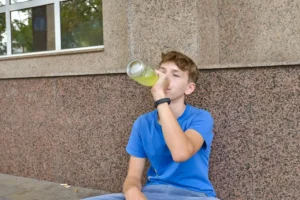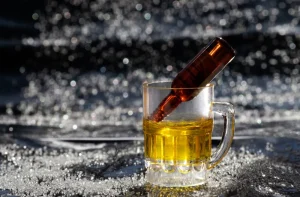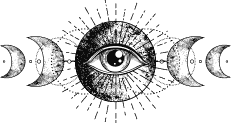
Alcohol use disorder, which includes alcohol dependence, is defined in the WHO’s International Classification of Diseases (available here). Alcohol use disorder (AUD) refers to the drinking of alcohol that causes mental and physical health problems. Globally, the age-standardized death rate has declined from approximately 40 deaths per 100,000 people in the early 1990s to 30 deaths per 100,000 in 2019.
- Many of the risk factors for alcohol dependency are similar to those of overall drug use disorders (including illicit drug disorders).
- One study linked the use of potent marijuana to psychotic disorders, but other studies suggest people with psychotic disorders may be predisposed to pot use.
- In 2022, states with the highest rates of deaths due to alcohol, drugs, and suicide were New Mexico (124.3 deaths per 100,000 people), West Virginia (115.7 deaths per 100,000 people), and Alaska (104.1 deaths per 100,000 people).
- (conclusion) Our findings lend support to previous work in the UK and the Netherlands, confirming that the present drug classification systems have little relation to the evidence of harm.
- On the surface, weed appears to be safer, but there’s simply not enough evidence to declare a winner.
- By default, the data for France is shown – in recent decades, here, the share of beer consumption increased to make up around a fifth of alcohol consumption in France.
How Drug and Alcohol Addictions Are Similar
In the US, Canada, Australia, New Zealand, Argentina, and many European countries, alcohol is responsible for around a third of all traffic deaths. The chart shows the age distribution of those dying premature deaths due to alcohol. The second map shows the estimated average consumption per person. Again, the prevalence of drinking across North Africa and the Middle East is notably lower than elsewhere. Typically, 5 to 10 percent of adults across these regions drank in the preceding year, and in a number of countries, this was below 5 percent. USA TODAY is exploring the questions you and others ask every day.

If you or someone you know is suffering from or at risk of an alcohol addiction

Although drug policy experts generally don’t dispute the assertion that alcohol is more dangerous than pot, the study, led by British researcher David Nutt, is quite controversial. Experts see the rankings as deeply flawed, largely because they present the harms that come from drugs in a rather crude, one-dimensional manner. Treatment for AUD can differ from person to person but sometimes starts with detoxification (detox). For anywhere from 2 days to a week, a doctor keeps a close eye on you while alcohol fully leaves your system. Because you could have withdrawal symptoms, medication that makes you sleep a lot is often part of detox. If your doctor thinks you need more support to stop drinking, they’ll likely refer you to a mental health provider, such as a counselor or therapist.
The Rise of Drug Use for Adults Ages 26-49

As time goes on, you’ll need to keep drinking more and more to achieve the same positive feelings. Nine criteria related to harm to an individual from a drug, while six looked at harm to others – both in the United Kingdom and other countries. The harms were gathered into five subgroups that covered social, psychological and physical harms. Scoring was done with points up to 100, with 100 being the most damaging and zero no damage. Weighting then compared the impact a score of 100 had on all the other criteria, thus identifying the 100-points-scoring-drugs which were more harmful than other 100-points-scoring-drugs.
Drinking Alone as a Teen May Foreshadow Future Alcohol…
It impacts their impulse control and makes it so their bodies need more and more alcohol to achieve the same effects. However, there were doubts regarding the differential weights of each criterion used. When we look at national averages in this way, there is no distinct relationship between income and alcohol consumption. This pattern of drinking is often termed ‘binging,’ where individuals consume large amounts of alcohol within a single session versus small quantities more frequently. Trying a substance or using it occasionally is often the precursor to substance use disorder, particularly if someone is predisposed to it due to genetic, social, environmental, or individual factors.

Symptoms of Alcohol Misuse & Addiction
Long-term alcohol misuse affects the brain and can lead to symptoms of psychosis. Between 2002 and 2022, combined rate of deaths due to alcohol, drugs, and suicide have increased by 142 percent from 74,003 deaths in 2002 to 207,827 deaths in 2022. A decrease in the alcohol-induced mortality rate led to a slightly lower combined rate of all U.S. deaths due to alcohol, drugs, and suicide in 2022, but the long-term trend alcohol vs drugs of such deaths is still alarmingly high. Genetic, psychological, social and environmental factors can impact how drinking alcohol affects your body and behavior. Theories suggest that for certain people drinking has a different and stronger impact that can lead to alcohol use disorder. Unhealthy alcohol use includes any alcohol use that puts your health or safety at risk or causes other alcohol-related problems.
- While being intoxicated with weed feels different than being intoxicated with alcohol, the two have roughly the same effect on your cognitive abilities, reflexes, and judgment.
- This interactive chart shows the average share of household expenditure that is spent on alcohol.
- Treatment can be outpatient and/or inpatient and be provided by specialty programs, therapists, and health care providers.
- For example, a value of 3.6 for bipolar disorder indicates that illicit drug dependency became more than three times more likely in individuals with bipolar disorder than those without.
Alcohol use disorder
- Your personality traits — for instance, how secure you feel about yourself or whether you’re prone to acting on impulse — can also play a part.
- Perhaps the biggest supporting evidence for this point is a 2010 study published in The Lancet that ranked alcohol as the most dangerous drug in the United Kingdom, surpassing heroin, crack cocaine, and marijuana.
- In fact, it’s so deeply ingrained in our culture that not drinking in some circumstances can be perceived as out of the ordinary.
- This is a face-to-face talk where you’ll lay out examples of their harmful behavior and suggest a specific treatment plan.
- The risk of physical and psychological dependence makes alcohol highly addictive.
Americans of the designated age in their state have been able to legally buy alcohol since 1933 when prohibition was lifted, and, culturally, being addicted to a legal substance is more acceptable than being addicted to an illegal one. We joke about having too many margaritas; we do not joke about deciding to roll up our sleeve and inject heroin. By Molly BurfordMolly Burford is a mental health advocate and wellness book author with almost 10 years of experience in digital media. Depending on the regulations, people who test positive may be directed to a substance abuse program (which means you may not be immediately dismissed for having tested positive). Certain foods or drinks can change the pH (acid-base) level of saliva and can alter the test results, potentially causing a false positive or false negative result. This includes vinegar, citrus, bicarbonate, fruit juices, and salt.

If you suggest a dramatic action, be prepared to follow through with it. If you’re under 30, this grassroots organization, which offers life skills, community chapters, and an opportunity to reduce the stigma around abuse issues, could https://ecosoberhouse.com/ be a good fit. Using cognitive-behavioral therapy methods, you’ll learn to manage cravings for alcohol and better manage your thoughts and behaviors. Getting support from others is often extremely helpful in getting and staying sober.


